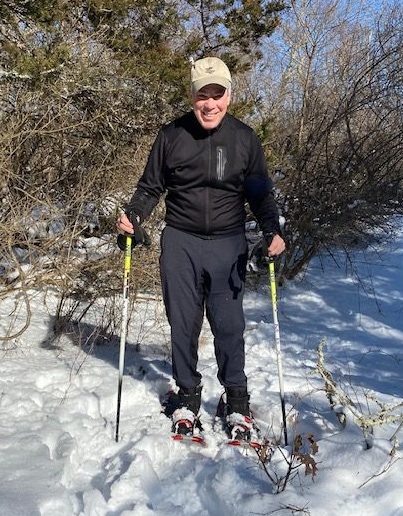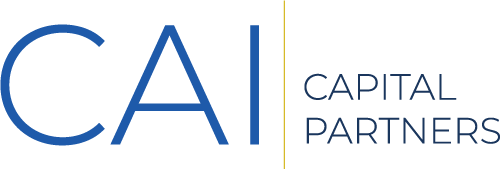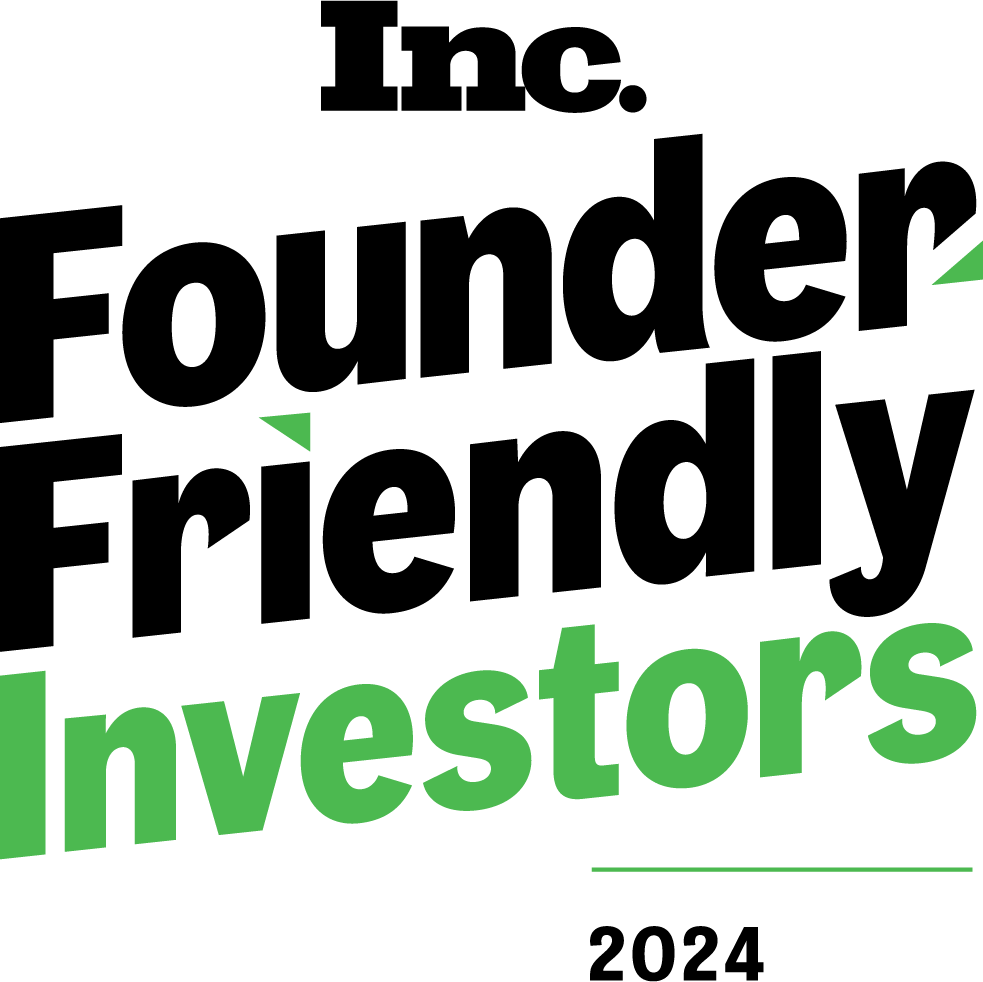
For the latest installment of our Meet the Team series, we are profiling Peter Restler, Co-founder of CAI Capital Partners. From the days of our founding in New York City to our modern day headquartering in Vancouver, Peter has overseen CAI’s growth over the past 32 years. Read on to learn more about Peter, get behind the scenes of the early days of private equity and pick up some tips for professionals in finance.
Why did you establish CAI? Did you have a vision for how the first few funds would be deployed?
When Dick Schmeelk, David Culver, Peter Gottsegen, Les Daniels and I founded CAI over 30 years ago, there were less than a handful of such funds operating in Canada and only slightly more in the U.S. We were looking to put our investment banking, management, governance and investing skills to work as a team with the culture of a smaller organization, and yet the reach and network of a much larger firm.
When we first founded the firm, the Canada-U.S. Free Trade Agreement (the forerunner to NAFTA and USMCA) had just come into place. We believed the agreement would create good investment opportunities for Canadian companies wishing to access the U.S. market. With this in mind, we invited fifteen industrialists with deep knowledge in key areas to join us as limited partners. Over the first few funds, this group proved helpful to us in identifying areas for investment, conducting due diligence and sitting on boards in industries they had familiarity with.
Is there a particularly memorable deal that you’ve worked on?
Although I was involved in the repatriation of two wonderful Canadian companies back to Vancouver, MDA and Corix, my most memorable deal would have to be the very first deal that I led. This was for Livingston International, Canada’s largest customs broker facilitating two way trade between the US and Canada. As you might imagine, this kind of deal spoke to CAI’s principal investment focus.
Interestingly, the opportunity initially came to our attention through a failed auction process. A segment of a larger business owned by the Ivey family, Livingston had been growing at a slower pace than the rest of its parent firm. As a result, it had been designated for sale. Given the relatively unstructured nature of our industry at the time, we were given the opportunity to work alongside their management team for a few months as we evaluated the investment opportunity. Over this period, we were able to both get comfortable with our concerns and build a strong case for future growth. We also chose to install Peter Luit as a CEO in the management team. At the time, Peter was an untested CEO but an individual we had come to know well and respect at the time we were evaluating the business. We’re certainly glad we did so, as Livingston became one of our most successful investments and Peter a good friend!
Do you work closely with the management teams and entrepreneurs that you have partnered with? Do you have any thoughts on what drives a successful relationship?
The foundation for a successful relationship with our leaders has been in first establishing a strong bond of trust. Our role as a private equity firm doesn’t place us in the position of managing the business day-to-day. Given this, it’s crucial that information is able to flow freely back and forth between ourselves and our management team. This goes a long way in ensuring that negative surprises are both identified and addressed early on.
Strong management has been the key to all our successful deals. We work closely with key leaders and help where our experience and knowledge can be additive. One of our founders, David Culver had previously run a large mining business, Alcan. He made a point of schooling our team to “stay out of management’s way”, a simple but powerful principle to not waste management’s valuable time with requests for irrelevant information. That advice has stuck with me through my time as an investor and came to form a key cornerstone of CAI’s approach to partnership.
What are you most proud of in your career?
Looking back, I feel fortunate to have had two long careers in both investment banking and private equity. There are more than a few memories that I cherish from both. However, my greatest point of pride lies with the successful transition to the current leadership group at CAI. Their dedication, superior investment performance and exemplary values have been wonderful to witness and I look forward to watching them continue into their next chapter.
What has been the most challenging aspect of your career?
Partnerships have many advantages but can also be fragile. Private equity firms are comprised of talented people, all of whom want the deal they’re championing to be approved for investment. Balancing these expectations and egos, while continuing to ensure that only the very best deals are selected, requires a skill set beyond traditional quantitative and qualitative analyses. This is a challenge for all private equity firms to navigate, particularly in their early days. Having made it to CAI Fund VI suggests that CAI has done so.
In retrospect, is there anything that you might have done differently?
I am sure looking back with the benefit of hindsight there were certain things we could have done differently. There are always the deals we should have passed on or others we could have completed, strategies that we could have pursued, whether or not they were out of step with our core strengths, etc. The journey has been a bit like a basketball coach having to adapt their strategy to that which fits his or her team the best. Our focus has always been helping founders and managers of lower-middle market companies. This segment of the market was best suited to our skills and experience and where we best believed we could achieve superior investment performance. Recent results, at least, have borne this out.
Has there been a formative mentor in your life?
I’ve been fortunate to have had a few mentors over the course of my career. I would define a mentor as someone who helps you in the formative stages of your career, takes an interest in you beyond work and is an individual whom you respect. My earliest mentor, Joe Wilson, was actually from Vancouver (he recently celebrated his 93rd birthday) and living as an expat in New York City. Joe has a brilliant financial mind. Working for him was my first job after university and I will always be indebted to Joe for introducing me to the wonders of Canada, teaching me how to write and communicate more clearly and for his very thoughtful advice long after we were actually working together. Joe also introduced me to many of New York’s best restaurants – I’ve been a lifelong fan ever since.
Do you have any tips for young professionals in the field?
Be resourceful. In the early days of fundraising for CAI Fund I, we had a hard time connecting with prospective investors. Although some of you might find this hard to believe, there was indeed a time before voicemail and Caller ID. Secretaries and assistants were an additional hurdle in the outreach process. So we made sure to make many of those hard to reach calls before 9 or after 5 when prospective investors were likely to pick up their own phones. A small but effective tactic, this approach allowed us to attract some very high-profile investors who otherwise would have been unreachable. I would encourage young professionals to approach their work with similar flexibility- you’d be surprised what a difference it can make.
Do you have a vision for the future of private equity?
You have to appreciate that when we founded CAI in the late 80’s, private equity as an industry was in its infancy. Auctions were rare, management teams readily accessible and some of today’s largest investors in the space like bcIMC, Ontario Teachers’ and CPPIB hadn’t yet started their programs. Over the past three decades the industry has grown substantially, achieved solid returns, and continued to evolve with new products. More change is to be expected in regards of term and fee structures, holding periods or regulatory frameworks. But if I had to signal the one area that I think may affect the industry most profoundly, it would have to be ESG. Climate change is real, and diversity and equality (DEI) efforts are not where they need to be. Black Rock, the world’s largest investor, recently told its CEOs to get ready for a zero-carbon emissions world by 2050. Personally, I think it will happen much sooner rather than later. As Bill Gates has said, “we always overestimate the change that will occur in the next two years but underestimate the change that will occur in the next ten. Don’t let yourself be lulled into inaction.”
Do you have any non-profits or causes that you like to support?
In Canada, I am on the board of the Stratford Festival, a world-class theatre organization where I have been lucky enough to attend performances with my wife and family for the last 50 years. After going dark last year due to the pandemic, the Stratford Festival is planning an exciting and appropriate comeback schedule for ‘21. Stay tuned…
Can you tell us a fun fact about yourself or your family?
My son, Lincoln Restler is currently running for City Council in Brooklyn New York’s 33rd District. Check out his platform and message for reform today.
What have you been up to during lockdown? Do you have any plans for when quarantine comes to an end?
I’ve been mostly isolating in beautiful, snowy Connecticut with my wife since the outset of the pandemic. It’s proven quite the shock to the system after a lifetime spent on airplanes! When life returns to normal, we look forward to heading back to Brooklyn, spending time with our grandchildren, going to restaurants and theatre, and, of course, travelling once more.
Looking to learn more about our team and portfolio investments? Get in touch with with the team at [email protected].
Interviewer: Maddelena Ponter
Contact: [email protected]


